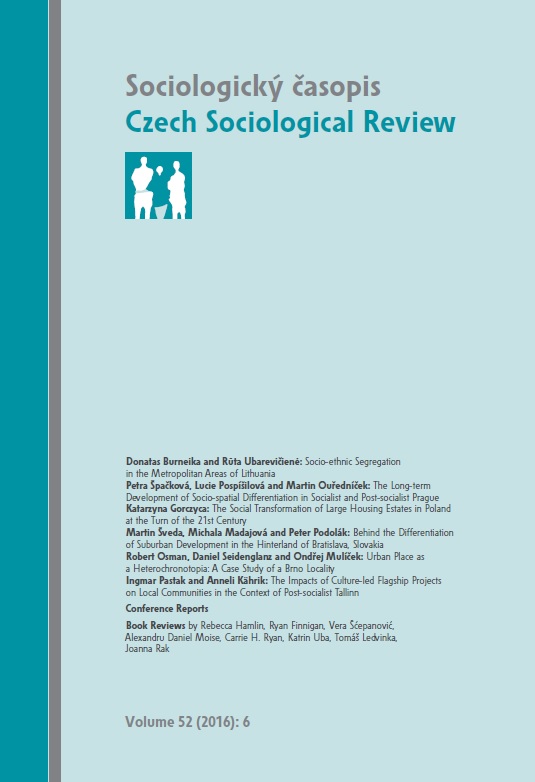
We kindly inform you that, as long as the subject affiliation of our 300.000+ articles is in progress, you might get unsufficient or no results on your third level or second level search. In this case, please broaden your search criteria.

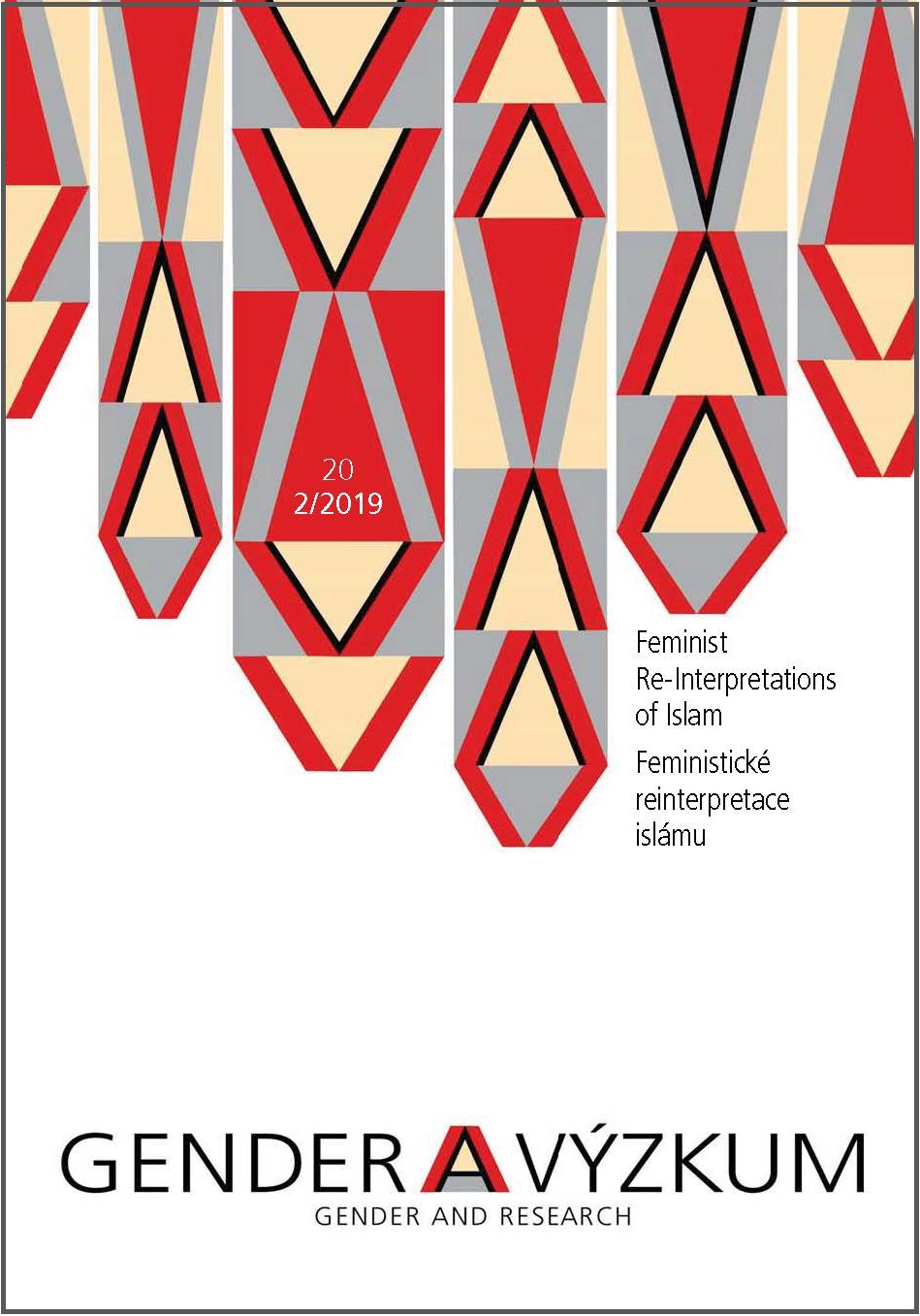
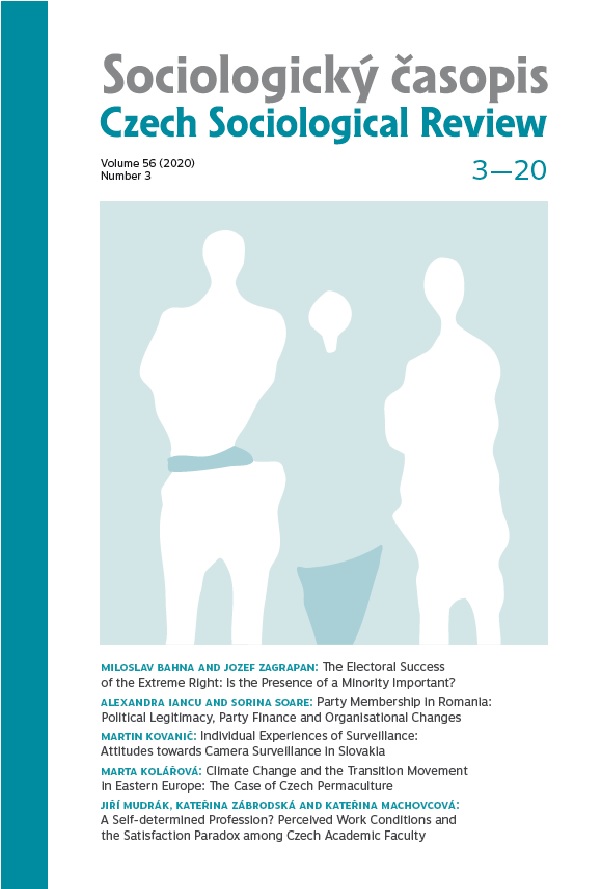
This paper focuses on a grassroots community movement addressing climate change: the transnational Transition (Towns) movement. While this movement has mainly spread to Anglophone countries, it is almost entirely absent from Eastern Europe and the Czech Republic in particular. The aim of this paper is to explain why the Transition movement—a grassroots community initiative—has not been successfully adopted in the post-socialist Czech Republic, and why the issue of climate change has not become an important frame for the local permaculture movement which introduced the idea of Transition to the country. The paper presents an analysis of ideological frames and framing processes of the local movement. Reasons identified for the movement’s absence from the Czech Republic include the fact that it was largely overshadowed by the broader post-socialist transformation in Eastern Europe, that there was little public awareness of climate change and no real culture of community organising in the post-socialist period, and that a strong climate scepticism was promoted by Czech political elites. Other reasons relate to the ideological frames of the local permaculture movement, which is centred more on prognostic and mobilising frames, combined with a positive agenda and an emphasis on practical activities, and revolves around individualised strategies and frames in which permaculture and a nature religion (Anastasian spirituality) are linked to the concept of a ‘family homestead’. The research draws on in-depth interviews with permaculture practitioners, media analysis, the study of documents, and participant observation.
More...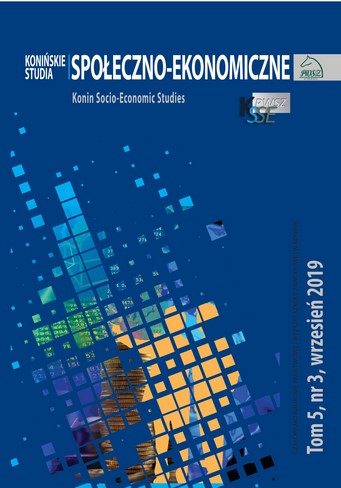
Social glocalization (portalization of globalization and localization) represents the simultaneous occurrence of universalization and particular tendencies in contemporary social, political and economic systems. In our paper we deal with the impact of the glocalization approach on solving social problems. Through socio-economic analysis we focus on the basic problems, terminological context, related topics and context of application of glocalization approaches to the solution of social problems as well as the relation of application of this approach to social practice.
More...
Over the past 20 or 30 years vast sums of money have gone into ‘global health’. The money has funded vast initiatives largely focused on infectious disease control, as well as university centres and research projects. The numerous and varied definitions of global health share a normative element. Global health implies an egalitarian approach, treating everyone’s health needs equally, irrespective of citizenship, ethnicity or gender. If we look at what the concept does in practice, other than lubricate the flow of funds, the picture becomes more complex. This essay argues that despite its normative connotations, global health is closely associated with globalization. It became an arena for engaging in contests for economic and strategic advantage under cover of its normative connotations. This ‘underside’ of global health was invisible to all but a few critics. I argue that responses to the Covid-19 pandemic have made it visible to all. Perhaps, recognizing what the concept really does, it should be used with caution, or avoided entirely.
More...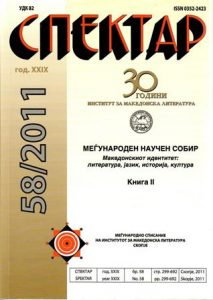
By voicing the question about the ways in which the over-the-national European identity can be created amidst conditions of globalization, this text starts with the thesis that such a concept is faced with problems which need to be resolved first and foremost at the national level. By problematizing multiculturalism as a “utopian theory” which does not solve any problems at the practical level, and viewing interculturalism as a potential danger to the “smaller” cultures, this text, through an analysis of the plays by Goran Stefanovski, points at the conditions that hinder the possible acceptance of the idea of a Europe without borders. Through four plays, Euralien, Hotel Europa, Ex-Yu, and Goce, Stefanovski equally criticizes Western Europe, for its construction of the problematic Other, with its visa regime, and its marginalization, as well as the Balkans, with the mythologizing of its nationally-romanticized narrative. The paper sheds light on the fact that the acceptance of a common (shared) European identity, a necessity which propagates itself amidst conditions of globalization, depends on the ways in which Europe will resolve the said problems.
More...
The novel The Twenty-First by Tomislav Osmanli announces a new narrative paradigm within the corpus of the Macedonian novel, which, in a productive correlation with today’s pulse and rhythm, forges a novelistic-like structure, while deconstructing the once-overtly present unilateral and monolithic view of the world. The linearity of the narration is thus forsaken in favor of presenting the simultaneity of several stories which are finally entrenched in the reality of a global/ized world and the cacophony of the communication practices that set its pulse, hence directing its course towards the phantasmagorical, the virtual, the contingent. The novel realizes itself as a landscape of characters and lives which are destined to intersect on one of the planes of the unilateral reality. Dislocation/Dislocatedness is the key modus so as to withstand the whirlwind of the world’s Disneyland ride undertaken by the Twenty-First, which does not only refer to his spatial orientation but also his temporal presence (re-displaying the represented world also inside history’s amusement park), with repercussions towards the borderlines existing between the real and the imaginary inside the senses’ single temporality.
More...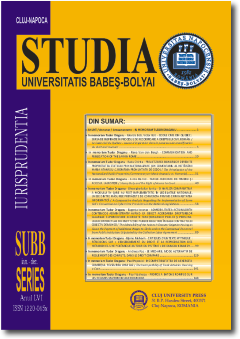
Studying the history of policing, we can conclude that the police have faced different challenges from time to time. There are ancient hazards such as fire, flood, or epidemic, and there are hazards that have been created through development, such as traffic hazards after motorisation has become widespread. Technical progress has accelerated over the past two hundred years, leading to a dramatic increase in risks. In the Middle Ages, a wanderer walking on the country road did not expect to be hit by a speeding mail car. By now, it has become natural that countless dangers are lurking in all areas of life that may have to do with policing. The above motivated us to examine what dangers threaten us in the age of globalisation and what answers can be given to the challenges of police in the 21st century.
More...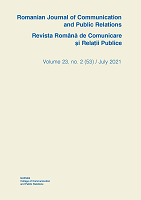
Development “is a way of getting acquainted with ourselves” (Dobrescu, 2020, p. 9). Starting with The Century of the Emerging World (2013) and continuing with No Project Country (2019), Paul Dobrescu explores Romania’s recent history of development, in an attempt to understand what future is envisaged by current economic policies. As usual, the conclusions of the analysis are an elegy. Development was not a real priority during transition in Romania, but a rhetoric. “We had lived a time of development without freedom and we inaugurated a time of freedom without development” (p. 167). That is not to say that Paul Dobrescu’s newest book is a disheartening read. On the contrary, it invites meditation on the fate of countries and puts their development into a global perspective which, in rationalizing historical trends, provides a well-grounded explanation for contemporary developments, while giving hope for a more equitable future. If anything, Paul Dobrescu’s books are deeply humanistic (in a way globalization itself, his arch-theme spanning more than 20 years, is supposed to be) and serve as a reminder of the fate of the many.
More...
Global value chains (GVCs) are increasing during the past decade, thereby raising new policy challenges for many countries, regarding various fields, as trade, competitiveness, innovation and management of global systemic risk. Today, world economy is characterized by global value chains in which intermediate goods and services are traded in fragmented and dispersed production processes. Therefore, the study of global value chains adds to understanding the nature of today’s geographically dispersed activities. In this article we try to analyze not only the evolution of value chains, but, in the same time, the changing features of this phenomenon in the last few years.
More...
Piraeus, Greece’s capital port city since the ancient times, is now home to many abandoned industrial sites that present an opportunity for revitalization through regeneration. This article presents applications of brownfield regeneration policies from the United States Environmental Protection Agency and the EU Brodise Program for the case of Piraeus, Greece. The paper includes a theoretical framework that introduces the historical patterns of development through globalization and changing economic systems that led to the presence of brownfield sites around the world. The research utilizes field work at major brownfield sites in Piraeus including site visits and stakeholder interviews, alongside literature review. The ultimate goal of the article is to exemplify areas of proven brownfield regeneration success internationally that can be applied to future policies to support efficient, transparent, and sustainable regeneration projects in Greece.
More...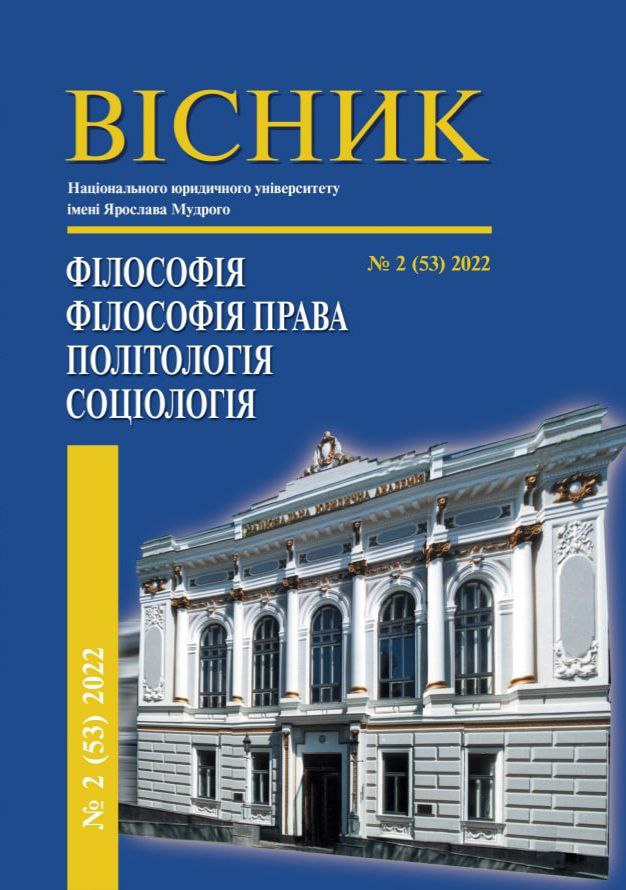
The content of the concept of «professional mobility» of specialists is revealed. It is proved that globalization and the use of modern information and communication technologies have significantly expanded the possibilities of their internal and external professional mobility. New forms of specialists professional mobility in the globalized world, their advantages and disadvantages are being.
More...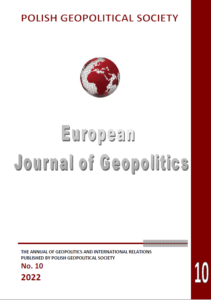
The concept of "globalization", which emerged rapidly with the end of the Cold War, brought with it various interpretations, depending on the actors who tried to define it independently. In this sense, the Chinese vision of globalization is generally different from that set by the West, and is based on a different conception of the global distribution of power. In this article we intend to highlight the points of contrast between the common perception in the West of the concept of globalization and that prevailing among Chinese institutions.
More...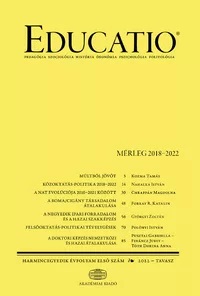
The paper examines the role of civilization and culture in the context of the globalizing international system. It sheds light on the contradictory nature of the system by highlighting the simultaneous processes of unification and fragmentation, globalization and deglobalization, and civilization and decivilization. Furthermore, the paper introduces different interpretations of civilization and culture, the contradictions inherent in the use of the singular and plural forms of the concepts (civilization – civilizations, culture – cultures). Global civilization can only be interpreted in a technicist-instrumentalist sense, not in the social or historical-philosophical sense of the word. Today, the role of local identities is characterised by a widespread emergence. The paper describes several types of global culture, including the internationalized elite culture, of which education, especially higher education, is being a prominent part.
More...
The paper analyses the consequences, dynamics and limits of recent developments in economic globalisation (the transformation of the international balance of power, climate change, the coronavirus epidemic and Russia’s war against Ukraine) in the context of longer-term trends and sustainability. Its main conclusion is that the globalisation process is slowing down, a new type is taking shape, but deglobalisation is unlikely. The study’s scientific novelty lies in its new approach to the dynamics and drivers of globalisation and its sustainability.
More...
This essay-like study explores the world of the relationship between globalization and education from three perspectives. The first is the pedagogical perspective of global education, the second is the globalization of education sector policy, and the third is the relationship between globalization and educational research. The study does not primarily focus on Hungary, but it contains several references to conditions in this country, and in its final part it formulates ideas specifically relevant to Hungarian education policy. The study focuses mainly on the level of basic and secondary education.
More...
The effects of globalization in the first two decades of the 21st century initiated or strengthened new processes in the field of higher education as well. The study arrives at the main questions of the new research direction by searching for the concepts of higher education globalization and internationalization in parallel. It summarizes the experience of research so far on the social, academic and educational effects of globalization. It highlights two strong elements: on the one hand, the responsibility of higher education in the rapid growth of social, economic and educational differences in the world, and on the other hand, the danger of neocolonialization in the field of culture. It deals with the connections between globalization, regionalization and the local level, and also presents the main features of the processes taking place in large regions of the world. Conventions ensuring the mutual recognition of higher education qualifications provide a basic framework for all of this, and the global convention as a new element.
More...
Education growth is not projected to slow down. However, as educational attainment increases in the wake of globalisation, the evolution of educational inequalities shows a particular pattern. As educational attainment increases, educational inequalities roughly follow an inverted Kuznets curve over the period of more completed years of schooling. However, in most country groups this is complemented by a slope of opposite curvature in the period of lower education. Thus, a wave-like pattern characterises the inequalities in educational attainment when examined along with educational attainment. The paper also examines the relationship between educational inequality and earnings inequality. The article then analyses the distribution of human capital based on data from a large number of UNESCO member countries, and the results show a clear Nessie curve, i.e. countries with the highest HDI percentiles have significantly higher human capital than countries with the lowest percentiles. In conclusion, the paper confirms the hypothesis that, as globalisation increases schooling, both the differences in schooling and the inequalities in the distribution of human capital increase.
More...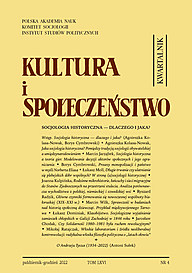
The article reflects on the political conditioning of cinema in the context of globalisation. The author presents an approach to cinema as a historical product of the Euro-Atlantic cultural circle and the modernism that springs from it, analysing the consequences of such genealogy in terms of the role played by cinema in the contemporary, global world of post-industrialism. On the basis of ethnographic research, the author points to the phenomenon of cinema producing specific images of reality, interpreting them as a manifestation of cinema’s deep roots in social and political processes. As a consequence, cinema is characterised as a discursive political space, the cultural meaning of which goes beyond the artistic sphere, but is associated with political processes and flows of tensions.
More...![Cyprian Rogowski, Sakroturyzm w dobie globalizacji. Studium interdyscyplinarne [Sacrotourism in the Age of Globalization. An Interdisciplinary Study], Adam Marszałek Publishing, Toruń 2018](/api/image/getissuecoverimage?id=picture_2022_72116.jpg)
Book review: Cyprian Rogowski, Sakroturyzm w dobie globalizacji. Studium interdyscyplinarne [Sacrotourism in the Age of Globalization. An Interdisciplinary Study], Adam Marszałek Publishing, Toruń 2018, pp. 371
More...